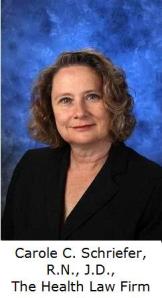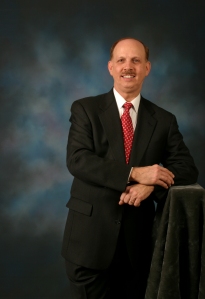Florida Compounding Pharmacy Pays $3.7 Million in Tricare False Claims Settlement

In May of 2015, Tricare began screening all compound medication prescriptions to ensure approval of each ingredient with the Food and Drug Administration (FDA). This decision came after a finding of a significant increase in compound drug prescriptions reimbursed by Tricare over the last year.
In April 2015, just four months into the fiscal year, it was already determined that total costs for compound drug prescriptions filled for Tricare recipients were likely to come close to $1 billion. If the trend continues, the Defense Health Agency expects it may need to reallocate funds at the end of this year to cover the prescription drug benefit, which is currently set at $8.25 billion.
For more on this new screening process and its effect on compound medication prescriptions, click here.
With prescription drug costs at an all-time high, the government is cracking down on health care fraud. This includes the implementation of data mining for fraud detection and prevention.
It was during one of these routine mining expeditions of reimbursement data that the United States Attorney’s Office identified MediMix, a compounding pharmacy in Jacksonville, Florida, as the top-biller of compounding pain prescriptions. More importantly, upon further investigation, it was found that Ankit Desai, M.D. was the top referring physician for MediMix.
The significance in the correlation between the two is that, according to reports, Dr. Desai happens to be married to one of the top executives (Senior Vice President) of Medimix.
To read the press release on this story, click here.
Anti-Fraud Laws Prohibit Certain Physician Referrals.
Health care providers are generally prohibited from referring patients to another medical-related business in which they hold a financial interest of some kind, if there are payments made with federal funds.
The prohibition on certain physician referrals is established under Section 1395nn, 42 United States Code (otherwise known as the Stark Law). The Stark Law was specifically enacted to place limitations on physician referrals so as to avoid:
(1) conflicts of interests;
(2) self-referrals;
(3) overutilization of services;
(4) increased health care costs;
(5) a limit on competition by other medical providers;
(6) to prevent ineffective and unsafe treatment; and, ultimately-
(7) fraudulent practices.
Click here for more information on the most common Federal fraud and abuse laws in health care.
The Stakes are High for Non-Compliance.
MediMix reached a settlement agreement with the government which has avoided a determination of liability. However, the Jacksonville-based compounding pharmacy did not get off without a significant penalty. The settlement will cost MediMix an impressive $3,775,458.
The FCA has been highly effective in exposing fraudulent practices of pharmaceutical companies. Whistleblower cases brought under the FCA have assisted the government in recovering more than $19 billion in stolen funds due to varying pricing, billing and marketing schemes.
Avoiding False Claims Violations.
Here are the most common pharmaceutical practices that can result in allegations of FCA violations:
(1) Off-label marketing of drugs;
(2) Illegal kickbacks;
(3) Inflating the price of pharmaceuticals;
(4) Best price fraud; and
(5) Pharmaceutical benefits manager fraud.
If you find yourself in a tricky situation with possible allegations of a FCA violation, it’s best to contact an experienced health attorney immediately to properly evaluate your case and inform you of your rights.
Comments?
Are you currently engaged in a questionable financial relationship? Do you agree with the law on prohibiting certain referrals in which there is a financial interest? Why or why not? Please leave any thoughtful comments below.
Contact Health Law Attorneys Experienced in Representing Pharmacies and Pharmacists.
The Health Law Firm represents pharmacists and pharmacies in DEA, DOH and FDA investigations, qui tam and whistleblower cases, regulatory matters, licensing issues, litigation, administrative hearings, inspections and audits. The firm’s attorneys include those who are board certified by The Florida Bar in Health Law as well as licensed health professionals who are also attorneys.
To contact The Health Law Firm please call (407) 331-6620 or (850) 439-1001 and visit our website at www.TheHealthLawFirm.com.
Sources:
Department of Justice, The United States Attorney’s Office, Middle District of Florida. Press release. “United States Settles False Claims Act Allegations Against Jacksonville-Based Compounding Pharmacy.” 1 June 2015. Web. 11 Sept. 2015.
Kime, Patricia. “Tricare to Start Screening Compound Medications Friday.” Military Times. A TEGNA Co., 1 May 2015. Web. 10 Sept. 2015.
“Pharmaceutical Fraud” Web blog post. False Claims Act Resource Center. Pietragallo Gordon Alfano Bosick & Raspanti, LLP, 2015. Web. 11 Sept. 2015.
Rumph, Alan, and Donna Lee Yesner. “When Referrals And Marriage Don’T Mix: MD, Pharmacy Settle Case.” Report on Medicare Compliance. Washington: Atlantic Information Services, Inc., 8 June 2015. Web. 11 Sept. 2015.
About the Author: George F. Indest III, J.D., M.P.A., LL.M., is Board Certified by The Florida Bar in Health Law. He is the President and Managing Partner of The Health Law Firm, which has a national practice. Its main office is in the Orlando, Florida area. www.TheHealthLawFirm.com The Health Law Firm, 1101 Douglas Ave., Altamonte Springs, FL 32714, Phone: (407) 331-6620.
Keywords: False Claims Act defense attorney, FCA, pharmaceutical fraud, compounding pharmacy attorney, fraudulent practices of pharmaceutical companies, whistleblowers lawyer, FCA violations, fraud detection, data mining, financial interest in physician referrals, Stark Law, Department of Defense, DoD, Tricare fraud attorney, health attorney, defense attorney, The Health Law Firm, health law firm, fraud investigations, conflict of interest in physician referrals, compound medication prescriptions, compounding pharmacy lawyer, prescription reimbursement, qui tam attorney, financial relationship with physician
“The Health Law Firm” is a registered fictitious business name of George F. Indest III, P.A. – The Health Law Firm, a Florida professional service corporation, since 1999.
Copyright © 1996-2015 The Health Law Firm. All rights reserved.









